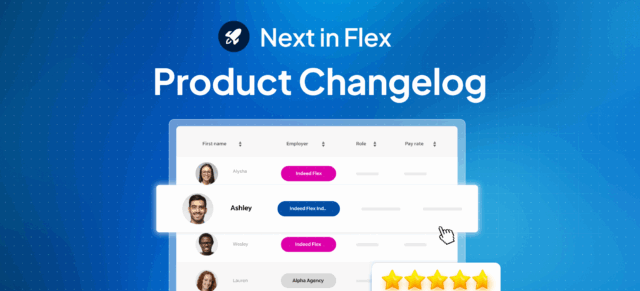
Most of us have all been in the hot seat at an interview before, but being the on the other side of the desk comes with its own set of requirements for skill and expertise. Whilst professionalism is obviously key, you want to get to know your interviewee beyond whats written in their resume. Here are some questions you might want to ask when selecting the best candidate for you:
1) What would you be looking forward to most about working with us?
Setting the tone right for an interview is key. A question like this sets the rest of the interview in a positive light and creates a scenario whereby the interviewee has to imagine already being an employee, then you can follow up with questions that will help you to assess their suitability the company. Furthermore, a question like this will give you an idea of why the person in front of you chose to apply for the role and if they have fully understood the job specification. It will give them a chance to explain what they are wanting to gain from you, as well as what they may be able to offer.
 2) What are you personal aims and how are you going to achieve them?
2) What are you personal aims and how are you going to achieve them?
Getting an insight into someone’s future goals can provide a good indication of where your candidate is in their ‘life stage’ but more importantly, shows what kind of mind set they are approaching your company with. It is important as an employer that you are aware and encourage personal aims to get the best out of your team.
3) What is an experience you’ve had but wouldn’t want to go through again?
A question like this allows people to discuss difficult situations they have come across without feeling as though they are highlighting weaknesses. Asking someone to ‘Tell me your biggest weakness’, will never get you a real answer, but rather one where the weakness always ends up as some sort of strength. The suggestion that everyone will have come across at least one difficult or compromising situation will also help you identify elements of a character such as an ability to handle pressure or use initiative, but also situations they may be able to handle but try to avoid. It’s a good way to also prompt candidates to talk about their experience with reflection and hindsight so you can see their progress and development through their career.
4) What does ‘work’ mean to you?
Being able to define ‘work’ is an effective prompt to discuss your expectations but also theirs. Discussing work will often lead to a conversation on past experiences and what environments and work cultures they have been involved with up until this point. It also gives you an insight into their perceptions of your company and what working with you would entail.
5) Who would you say is the most successful person you know?
This question seems like one you’d ask at an awkward dinner party to break the ice. It has its strengths in that it is a rather unexpected but ‘fun’ question where there is no right or wrong answer. It will, however, give you a very good insight into the kind of person you are dealing with, and the characteristics that cannot be put across on paper. Inherently the question also alludes to the understanding of success, and what they view success to be. Does this correlate to your company ethos? How does it match up?
6) What makes you happy?
This is a great question to find out whether someone holds values that would fit well into the workplace. It also helps you identify their motivators and what gets them up in the morning. You will be looking to employ someone with enthusiasm over an interviewee who is lacking a bit of zest. This will help you identify where they fall.
 7) What are the negatives of this company?
7) What are the negatives of this company?
This question prompts more than just backhanded compliments. Being able to talk about the negatives sets a good precedence of trust and compromise. This is not to say that you have to offer to change any points they may bring up, but it is a good means of delineating their ability to be constructive in their criticism, and also open to discuss things during their employment that they may not be completely satisfied with. It also shows you whether they are capable of bringing innovative ideas to the table, or even that they are self-aware in their choices and new environments they find themselves in.
8) If you were in my seat, what question would you ask yourself?
This is question that will put the ball in their court to indicate an area of their experience or expertise that they want you know about. It is a good opportunity for a candidate to bring up an aspect of their personality or ‘story’ that they think has impacted them or is significant enough to warrant mentioning. It’s a real ‘get to know you’ question that is helpful for breaking through nerve barriers.
9) Teach me something I might not know.
This gives your interviewee the opportunity to talk about something they know a lot about and therefore, probably have some passion for. Seeing someone talk about something they enjoy or are good at is a great way to see the best side of a person. This question also lends itself to assessing how logical someone is, or how well they communicate concepts and ideas, which are obviously key skills in any team-working situations.
10) If you worked here, enjoyed your job and got paid a salary you were happy with, what would prompt you to take up another job somewhere else?
Most job advertisements will have a ‘desirable qualities’ list, and commitment is definitely one of them. Of course, you cannot expect people to want to stay forever, but it is a good to know that who your hiring really does want to stick around and contribute to what your company is about. It will also indicate if someone really does feel that they want to work with you and your team, and will give you some perspective on their next moves that may be important to consider in your decision-making process.








